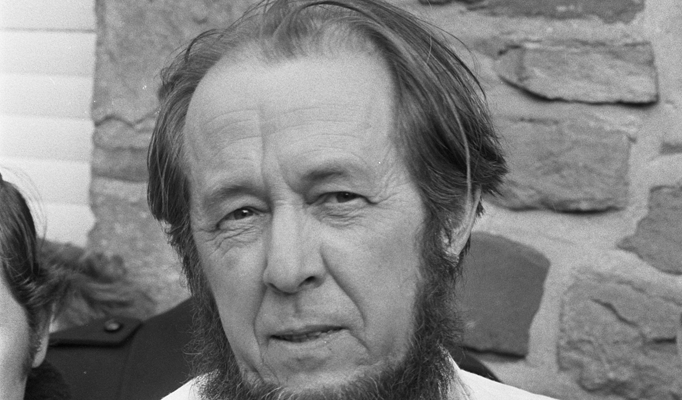
Are there modern-day prophets, or did that all cease when the bible was completed? Prophecy will cease one day when Jesus, the perfect one, returns to take us home (1st Corinthians 13:10). In the meantime, we see prophets like Alexander Solzhenitsyn who challenged both eastern and western worldviews.
Solzhenitsyn was still in the womb when his Russian father died from a hunting accident. His Ukrainian mother Taisiya Zakharovna (née Shcherbak) brought him up in the Christian faith. The Soviet school system converted him to militant atheism.
Might the hard-won wisdom of the weeping Solzhenitsyn provide a way forward in the seemingly intractable Russian/Ukrainian conflict?
Solzhenitsyn was sent to Siberian prison for ten years, because he dared to question Joseph Stalin in a private letter to a friend. The suffering of prison restored his faith in Christ. He noticed that believers were not destroyed by the horrific prison conditions. While in prison, he wrote a book that was the first to ever be published about the communist Siberian prisons: One Day in the Life of Ivan Denisovitch. Not allowed to write it because of the extreme censorship, he had to store the book in his brain, and only wrote it down on paper much later. One of the most delightful prisoners in his novel was Alyosha the Baptist:
‘Alyosha, who was standing next to Shukhov, gazed at the sun and looked happy, a smile on his lips. What had he to be happy about? His cheeks were sunken, he lived strictly on his rations, he earned nothing. He spent all his Sundays muttering with the other Baptists. They shed the hardships of camp life like water off a duck’s back.’
The Soviet leader Nikolai Khruschev, who resented Stalin’s abuse, publicly criticized Stalin, and then welcomed Solzhenitsyn’s book as supporting his new stance. His official authorization of this book was mind boggling for the Russians. This was the initial crack in the formidable Iron Curtain. After Khrushchev was deposed, however, the repression came back, and Solzhenitsyn was shut down again. He had to write in secret, hiding his writings in bottles, buried in the ground. He was in real trouble with the Soviets over the publishing of his book Cancer Ward, after he survived terminal cancer. Stalinism was described in his book as a malignant cancer. In Russia, everything was supposed to be wonderful. How dare he criticize the perfect socialist society? The KGB poisoned him in 1971, but he miraculously survived it.
When he wrote two copies of Gulag Archipelago, the KGB stole one of the copies, hidden by a friend. After they tortured her and she gave it up, she hung herself. With the other copy, he couldn’t wait any longer, so he sent it in 1973 to be published in the West. He was treated as a traitor in Russia. Western Germany accepted him, after they threw him out of Russia.
When Solzhenitsyn moved to Vermont, USA, to write in seclusion, the media showered him with unrelenting adulation. The peak of this attention was his speaking at a 1978 commencement event to 20,000 people outside, in the rain, at Harvard University. It was the largest gathering at Harvard in known history.
They expected that he would give a pleasant talk criticizing Russia and complimenting the West over its standing for freedom. Instead, he spoke about Harvard’s motto Veritas, affirming objective, knowable truth. In his talk, he prophetically critiqued Western culture and the USA for its softness and lack of courage. He shocked them by saying that he couldn’t commend the West to Russia because of its self-indulgence.
He said that because the Russian Christians have suffered so deeply under communism, they have developed more spiritually. In contrast, the West has worshipped material success, but often ignored its spiritual development. From that point on, the media treated Solzhenitsyn as a non-person, removing any significant media coverage.
What might happen if Ukrainians, Russians, and the West would rediscover the forgotten prophetic voice of this weeping prophet? Might God still give us a miracle of peace in our war-torn world? Lord, grant us your peace.

Leave a Reply